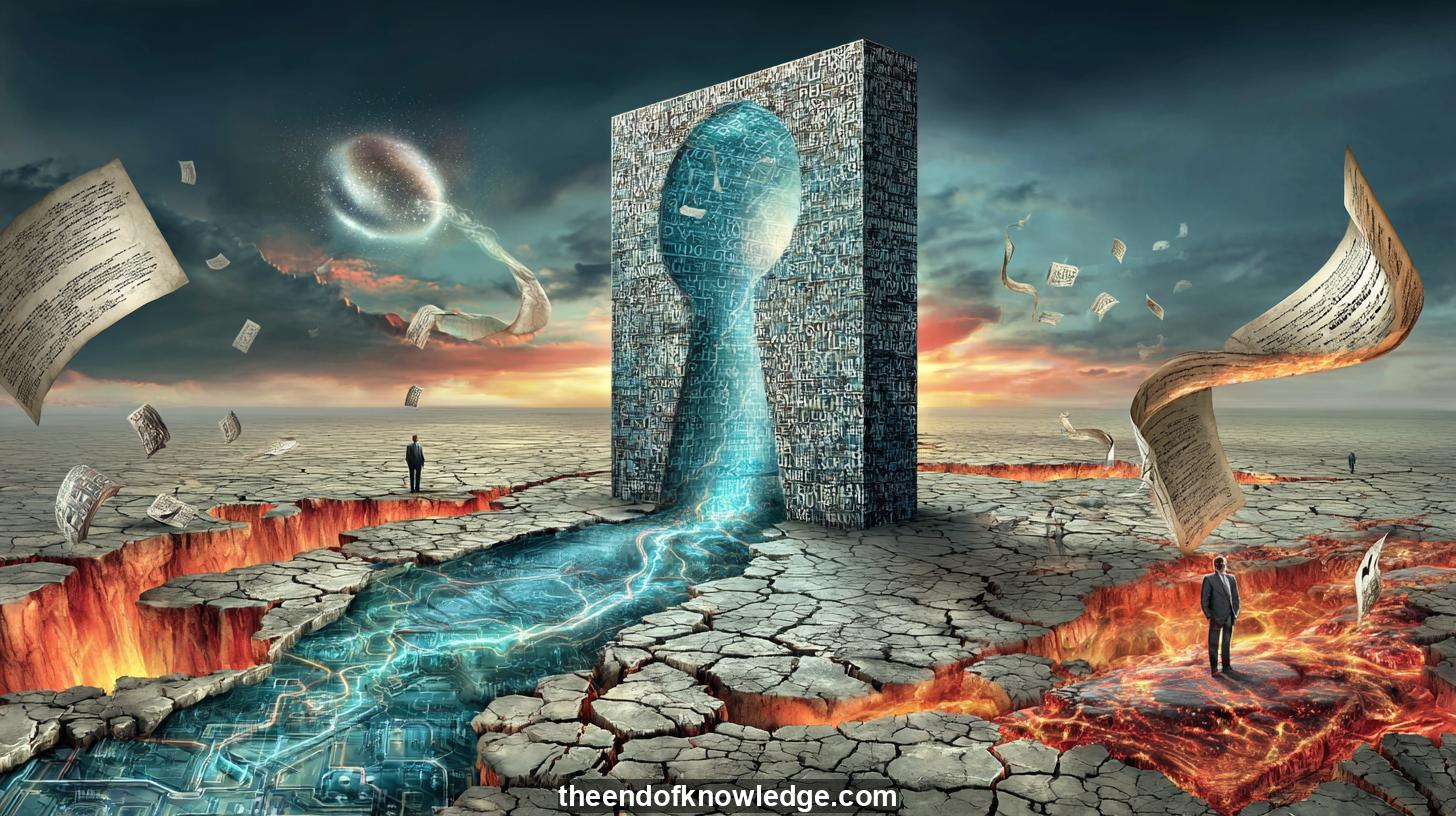Concept Graph, Resume & KeyIdeas using Moonshot Kimi K2 :
graph LR
classDef critique fill:#f9d4d4, font-weight:bold, font-size:14px;
classDef dualism fill:#d4f9d4, font-weight:bold, font-size:14px;
classDef limits fill:#d4d4f9, font-weight:bold, font-size:14px;
classDef ethics fill:#f9f9d4, font-weight:bold, font-size:14px;
classDef human fill:#f9d4f9, font-weight:bold, font-size:14px;
A[Vault7-327] --> B[Machine consciousness
pseudoscience without data. 1]
A --> C[Intelligence differs from
subjective experience. 2]
A --> D[Dualism: mind irreducible
to matter. 3]
A --> E[Emergentism commits
category error. 4]
A --> F[Qualia unmeasurable
objectively. 5]
A --> G[Science cannot falsify
consciousness claims. 6]
A --> H[Functional equivalence
insufficient for experience. 7]
A --> I[Wooden duck test
lacks inner life. 8]
A --> J[Quantum indeterminacy
invoked for mind. 9]
A --> K[Scientism dismisses
non-empirical truths. 10]
A --> L[Panpsychism confuses
reactivity with awareness. 11]
A --> M[Ethical risks from
simulated sentience. 12]
A --> N[Human vulnerability
unique irreplaceable. 13]
A --> O[Commercial myths
promote conscious machines. 14]
A --> P[Philosophy guides
beyond empirical limits. 15]
A --> Q[Correlation not
causation for mind. 16]
A --> R[Chinese room lacks
semantic understanding. 17]
A --> S[Falsifiability demarcates
science from metaphysics. 18]
A --> T[Subjective reports
only access to experience. 19]
A --> U[Behavior replication
≠ consciousness replication. 20]
A --> V[Neuroscience popularizes
flawed emergence. 21]
A --> W[Quantum microtubules
unproven for awareness. 22]
A --> X[Zombies challenge
behavioral equivalence. 23]
A --> Y[Artificial moral status
needs cautious axioms. 24]
A --> Z[Humanism defends
value against replication. 25]
A --> AA[Scientific humility
for unfalsifiable theories. 26]
A --> AB[Tech exploits
ambiguity for marketing. 27]
A --> AC[Science evolves
beyond initial dogmas. 28]
A --> AD[Consciousness inquiry
belongs to philosophy. 29]
A --> AE[Imperfection defines
human uniqueness. 30]
class B,C,D,E,F,G,H,I,J,K,P,Q,R,S,T,U,V,W,X,Y,Z,AA,AB,AC,AD,AE critique
Resume:
argues that the claim that machines can become conscious is a pseudoscientific narrative built on unverified assumptions rather than empirical evidence. It begins by distinguishing between intelligence, which can be simulated, and consciousness, which involves subjective, first-person experience that resists objective measurement. The author, Eduardo César Garrido, adopts a dualist stance, positing that consciousness is irreducible to physical processes, a position unpopular in mainstream neuroscience but defended through philosophical arguments and appeals to quantum indeterminacy.
The discussion critiques emergentist and panpsychist views, showing that equating complexity with awareness commits a category error. It emphasizes the epistemological limits of science: while we can correlate neural activity with reported experience, we cannot access another being’s qualia. warns against “scientism,” the belief that all truths must be scientifically measurable, and argues that the consciousness debate belongs to philosophy, not empirical science.
Garrido uses thought experiments—such as a human-computer built from millions of people acting as transistors—to illustrate that functional equivalence does not guarantee phenomenal experience. He also challenges the validity of current “consciousness tests,” likening them to a wooden duck that quacks convincingly yet lacks inner life. The text insists that until falsifiable criteria are established, claims about machine consciousness remain metaphysical speculation.
Finally, explores the ethical stakes: if society conflates simulation with sentience, we risk granting moral status to artifacts and eroding the unique value of human vulnerability. It concludes that the myth of conscious machines serves ideological and commercial interests more than scientific understanding, urging humility and philosophical clarity in the face of profound uncertainty.
30 Key Ideas:
1.- Paper claims machine consciousness is pseudoscience lacking empirical validation.
2.- Intelligence simulation differs fundamentally from subjective conscious experience.
3.- Dualist stance argues consciousness irreducible to physical processes.
4.- Emergentist theories commit category error equating complexity with awareness.
5.- Epistemological limits prevent objective measurement of first-person qualia.
6.- Scientific method cannot falsify metaphysical consciousness hypotheses.
7.- Thought experiments reveal functional equivalence insufficient for phenomenal experience.
8.- Current consciousness tests likened to convincing wooden duck lacking inner life.
9.- Quantum indeterminacy invoked to support non-material consciousness.
10.- Scientism criticized for dismissing non-empirical truths.
11.- Panpsychism challenged for conflating reactivity with awareness.
12.- Ethical risks arise from conflating artifact simulation with sentience.
13.- Human vulnerability emphasized as unique and irreplaceable.
14.- Commercial interests promote myth of conscious machines.
15.- Philosophy must guide consciousness debate beyond empirical limits.
16.- Correlation between neural activity and experience does not imply causation.
17.- Chinese room argument illustrates syntax without semantics issue.
18.- Falsifiability criterion demarcates scientific from metaphysical claims.
19.- Subjective report remains sole access to conscious experience.
20.- Replication of behavior does not guarantee replication of consciousness.
21.- Neuroscience popularizes emergence despite philosophical flaws.
22.- Quantum processes in microtubules not proven linked to awareness.
23.- Philosophical zombies concept challenges behavioral equivalence.
24.- Moral status of artificial agents requires cautious axiomatic assumptions.
25.- Humanism defends irreplaceable value against machine replication.
26.- Scientific humility needed when addressing unfalsifiable consciousness theories.
27.- Technology companies exploit ambiguity for marketing advantage.
28.- Historical precedents show science evolves beyond initial dogmas.
29.- Consciousness inquiry belongs to philosophy, not empirical science.
30.- Imperfection and vulnerability define human uniqueness beyond machines.
Interviews by Plácido Doménech Espí & Guests - Knowledge Vault built byDavid Vivancos 2025
 >
>